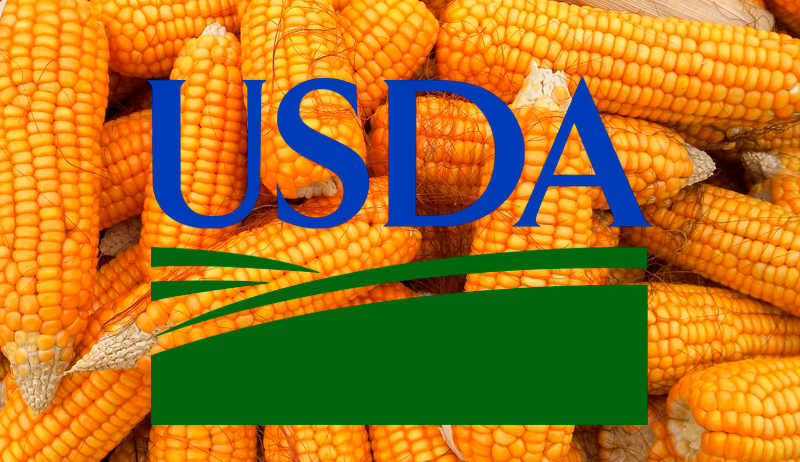USDA updates US crop of corn to a new record

The 2023 US crop was updated, in November, by the US Department of Agriculture to a new record. Now, there are 387 mln tons that could close the numbers next January. Stocks only did not grow beyond 55 mln tons due to higher demand, compensating for high production. For prices, the picture continues to be bearish, with the CBOT losing support at USD 4.70/bushel last week. However, there is a discrepancy in data that USDA will need to adjust in its next reports, that is, the Chinese crop is also a record.
This November report from USDA was expected to point to a slight increase in the yield estimate for this 2023 crop. The harvest still lacks nearly 19% left to be completed, and yield adjustments will be made until January. In this report, it was raised from 173 to 174.9 bushels/acre, well above the average market expectation. Production jumped to 386.9 mln tons, a new record in a year with weather problems in part of the Midwest.
The balance in ending stocks came from the demand side. USDA increased demand and contained a further increase in stocks, which now stand at 54.8 mln tons for the end of the 23/24 season, next August. It is quite difficult to reduce stocks for 2024 without new ingredients such as:
– Reduction of planted area in the USA in 2024;
– Increase in exports;
– Crop failure in Brazil.
The soybean/corn exchange ratio on the CBOT begins to favor a recovery in the soybean area in 2024 in switch for corn. It should be noted that even with an adverse weather situation, the corn crop was a record in the USA, while the soybean harvest suffered more losses. The positioning of stocks reveals the possibility of this investment in at least 2 mln acres in the next planting.
The increase in US exports in this cycle will depend on Brazil’s shipping cycle, which is expected to slow down from January, as well as the production profile of the 2024 corn second crop. As Brazil has become the world’s largest exporter, Brazilian performance will bring fluctuations in US sales. Therefore, attention is beginning to turn to the Brazilian 2024 corn second crop, in which planting is distant, but the viability window is closed.
However, there is a discrepancy between data that could hinder greater US exports, besides normality in Brazil. USDA maintained its projection for the 2023 Chinese crop at 277 mln tons, in sharp divergence from the Chinese government’s figure of 288 mln tons. It seems discreet, but the difference represents a greater importation potential or not from China. Considering that China is making heavy purchases from Brazil, there would be little left to import from the United States. Another bearish factor for the CBOT?
From the point of view of Europe and Ukraine, there were increases in the projection for Ukraine exports and European imports. Nothing that could change the global situation and still having as influence the maritime flow in the Black Sea.
In Argentina, corn planting reached 29%, and soybeans 6%, a slightly slower start due to the initial rain delay, but progressing well in the key growing region, mainly Buenos Aires. As the country’s planting window is later, going until January, and climate forecasts are favorable from now on, there is no risk yet for the local crop.
Another fundamental point is the local electoral result. Changes in the economic environment will be inevitable for 2024, given the tragic situation of hyperinflation, erratic exchange rate, and disconnection with the global financial environment. One of the ways to recover the Argentine economy will be to restore its export capacity, breaking with a Jurassic process with more than 15 kinds of exchange rates, export restrictions, control with high tariffs, and so on. A correction in the commercial environment will put Argentina back on the export path and with a crop potentially recovered in 2024, which brings chances of a great recovery in exports of the soybean complex.
Read also
Wheat in Southern Brazil Impacted by Dry Weather and Frosts
Oilseed Industry. Leaders and Strategies in the Times of a Great Change
Black Sea & Danube Region: Oilseed and Vegoil Markets Within Ongoing Transfor...
Serbia. The drought will cause extremely high losses for farmers this year
2023/24 Safrinha Corn in Brazil 91% Harvested
Write to us
Our manager will contact you soon



